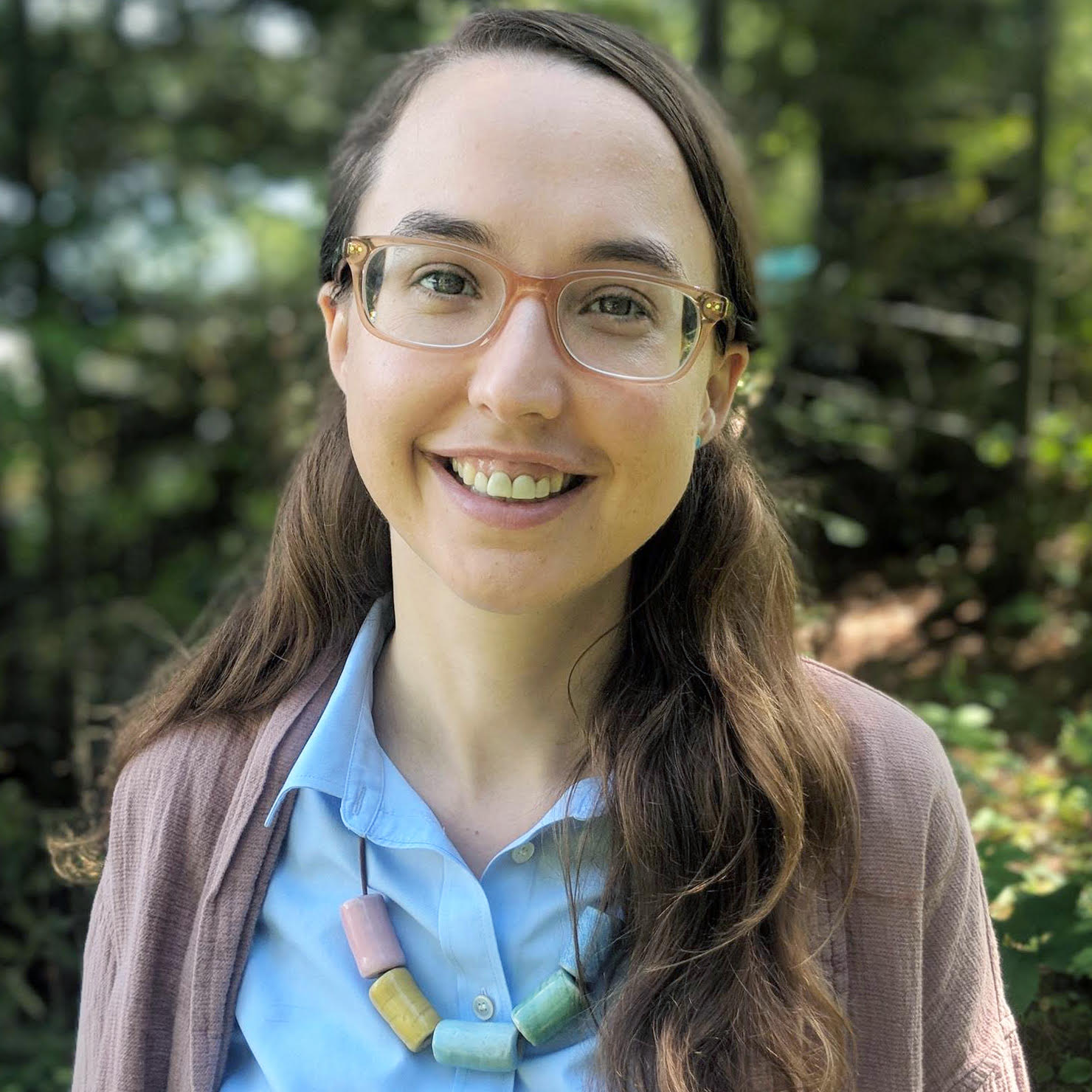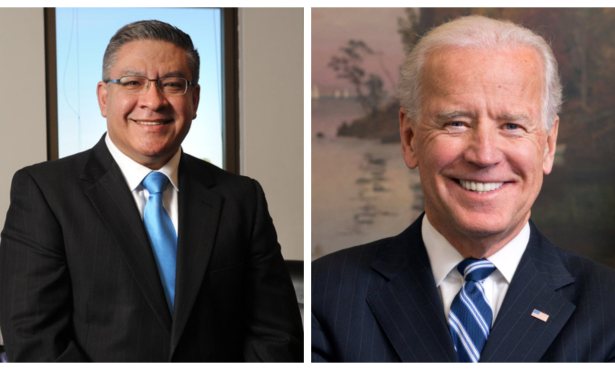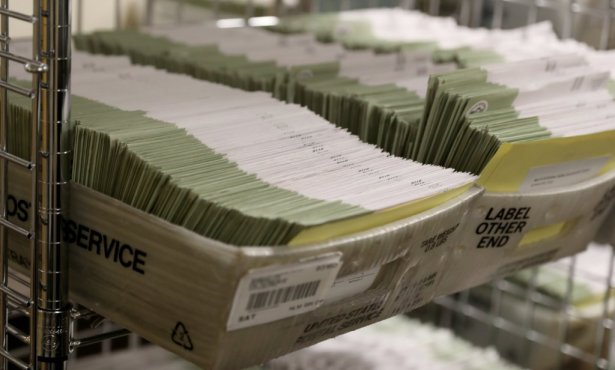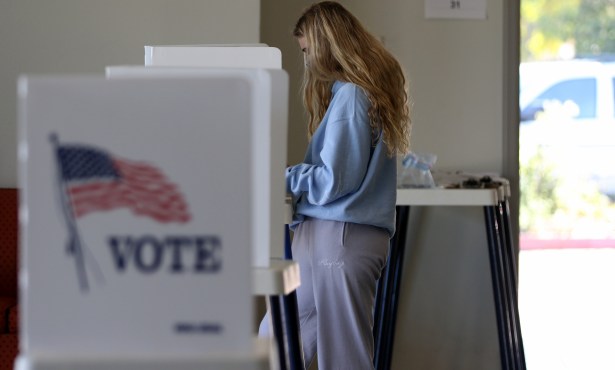Leah Stokes on Climate Issues Near and Far
UCSB PoliSci Prof Weighs In on Buildings, Bikes, SoCalGas, and Communicating Climate Policy

Despite its identity as the birthplace of the environmental movement, Santa Barbara still has far to go before it can call itself a truly “green” city — so says Leah Stokes, assistant professor of political science at UCSB and this year’s recipient of the university’s Harold J. Plous Award, given for excellence in research, teaching, and service. With Election Day — and its implications for U.S. climate action — just around the corner, Stokes aims an expert’s eye on the response the climate crisis requires at national and local levels.
One would struggle to find a better local voice in this regard than Leah Stokes, who worked at the Parliament of Canada and with the nonprofit research institution Resources for the Future before earning her PhD in public policy from MIT in 2015. Since then, her work at UCSB has focused on energy and environmental politics, policy, and political behavior in the United States.
Stokes is much-loved by her students, as well, receiving 4.9 out of 5 stars on RateMyProfessors, a site where students anonymously review their teachers. “Every political science major knows that PS15 is the least favorite pre-req … but Professor Stokes creates a class that turns unappealing statistics into a dope subject,” wrote one student. Another said, “Every lecture is not only clear and informative but gut-bustingly hilarious.”
In a conversation earlier this month, Stokes asserted that climate action needs to come from the federal level in order to set the rules of the road for the entire country. “If we had a 100 percent clean electricity standard by 2035, as Joe Biden has pledged to do, that would dramatically scale up action across the country, even in California where the current target is 100 percent [clean electricity] by 2045,” she said. Stokes pointed out that the federal government also has the financial resources to tackle climate change at the scale required, while many local budgets remain strapped dealing with COVID.
Get the top stories in your inbox by signing up for our daily newsletter, Indy Today.
That’s not to say local governments don’t have a role. Stokes highlighted the building sector as an area where local governments can lead, whether through building codes, requirements banning fossil gas in new buildings, or rebates for homeowners who replace gas heating and cooking systems with electric units. “Santa Barbara has been focused for a long time on architectural review — what are our buildings going to look like? — but not nearly focused enough on what’s happening inside the buildings,” she said, pointing to cities like Berkeley and San Luis Obispo as models for phasing out gas.
Even these places, however, face obstacles. Stokes’s book Short Circuiting Policy examines how utilities and interest groups have promoted climate denial and weakened clean energy laws. Our local bad actor, she said, is SoCalGas. The utility has used ratepayers’ money to fund front groups promoting natural gas — including one called Californians for Balanced Energy Solutions, which opposed San Luis Obispo’s move toward an energy code favoring all-electric building construction. The group delayed the vote on the new code in March by threatening to bus in hundreds of protestors not practicing social distancing. “This is the same utility that was responsible for the massive methane leak at Porter Ranch,” Stokes reminded. “We really need to get off of fossil gas. Not only are they not helping people do that, they’re standing in the way of local governments … trying to take action.”
Utilities and fossil fuel companies, Stokes said, use similar tactics in elections everywhere, funding candidates in primary elections to run against Republicans who support climate action. This sends the message that Republicans must oppose action on climate change to stay competitive with their constituencies. Republicans today, in Stokes’s view, “struggle to articulate a view independent from these polluting industries.”
With interest groups sowing political doubt about climate action, Stokes felt the media has to highlight the connections between climate change and people’s lived experiences of natural disasters — such as this year’s unprecedented wildfire season — in real time. Without this, she said, people think more about the costs of climate action than the costs of inaction: “lost lives in mudslides, or drought endlessly in our area … sea-level rise, coastal erosion.”
Yet, with some exceptions, Stokes said she sees far too little of this type of reporting. Santa Barbara badly needs it: We’ve already warmed two degrees Celsius, twice the global average. “There are projections that by 2050, our region could be a desert,” Stokes warned. “If people love this place, they need to realize that climate change is happening now, and we need to speak up about it.”
The way we speak up, however, also matters to Stokes. Asked about an April op-ed in the Independent that advocated for personal behavior changes to mitigate climate change, Stokes said this message was misguided. “Old-school environmentalism was very focused on recycling or your individual carbon footprint. What new-school environmentalism is about is looking at the actors that structure our society — governments, corporations,” she said. “They need to be changing the structure of our society so that we can all have easy choices to make to live in a low-carbon way.”
She returned to San Luis Obispo as an example: People needed the city to adopt an energy code to incentivize the construction of gas-free buildings, and they needed SoCalGas held accountable when the utility’s front group interfered. Similarly, in Santa Barbara, those wanting to reduce emissions by biking might not feel safe doing so given the city’s lack of protected bike lanes. Adding some, Stokes argued, would empower more people to make that choice. In each case, she said, governments and corporations “condition our ability to act in an environmentally friendly way.”
Advocating for behavior changes, Stokes added, leads people to associate climate action with personal sacrifice — a narrative that doesn’t sell well, especially among underprivileged groups struggling with widespread income inequality along race and gender lines. “That’s what the delayers and deniers want to frame this as,” Stokes pointed out. “They want you to think, ‘I don’t want to do climate action because it’s going to cost me something.’ No, it’s going to benefit you enormously, especially for people living in Santa Barbara!”
Focusing on those benefits might provide a surer way forward. Overhauling national energy systems and infrastructure, while daunting, could lead to ample job creation. Highlighting this, Stokes said — along with other tangible benefits like clean air and lower energy bills — will garner support for climate action more effectively than encouraging people to “do the right thing” for the environment. Stokes’s new podcast, A Matter of Degrees, covers this topic in its first episode.
Whether those benefits come to pass, Stokes said, may hinge on the November election. In her mind, voting is one area where personal behavior truly matters. She pointed out that environmental justice factors into this election, too, such as Joe Biden’s climate platform, which pledged to target 40 percent of his $1.7 trillion climate plan toward disadvantaged communities, who will be hit hardest by climate change. Not everyone in those communities, Stokes reminded, can vote for such an outcome. “There are people in this country who are undocumented; they can’t vote. There are young people who are going to be affected the most by climate change; they can’t vote.” Stokes urged citizens to consider these people when casting ballots — or when deciding whether to vote at all.
Overall, Stokes described Biden’s climate platform as the most ambitious of any presidential candidate, or any state, in history. “Honestly, I am very excited about Joe Biden’s climate platform, and that isn’t how I felt at the beginning of the primary,” she said. “I don’t feel like there’s any space here for disillusionment.”
Stokes’s research will be a highlight of the Plous Lecture she will give in the spring at UCSB, as well as the need for rapid and meaningful climate action at all levels of government.
Every day, the staff of the Santa Barbara Independent works hard to sort out truth from rumor and keep you informed of what’s happening across the entire Santa Barbara community. Now there’s a way to directly enable these efforts. Support the Independent by making a direct contribution or with a subscription to Indy+.



